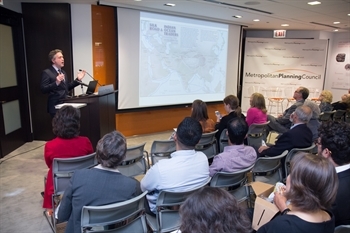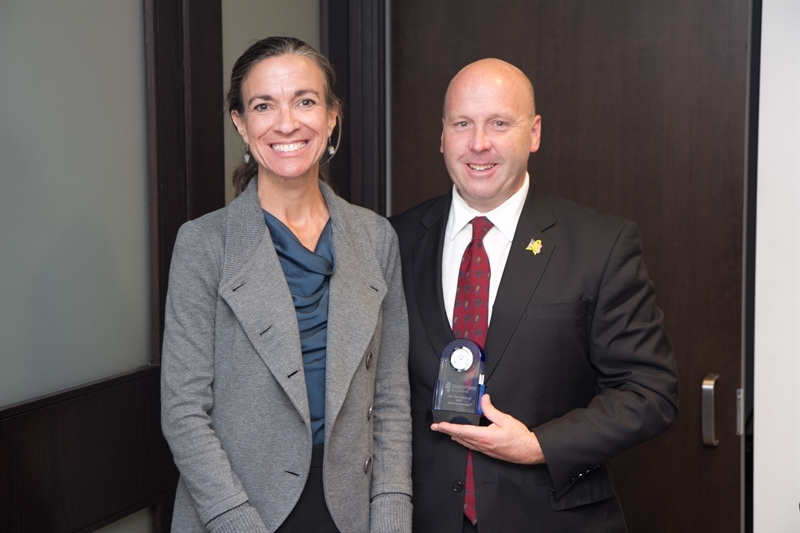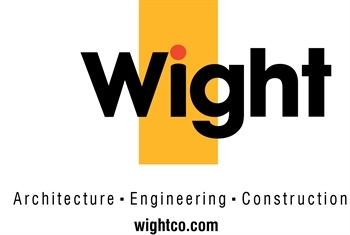
Metropolitan Planning Council
Transformer Award winners and Transform Illinois partners
This post was authored by MPC Research Assistant Quentin Shipley-Mellon.
At a time when frustration toward government seems to be at an all-time high, it’s refreshing to take note of those who are truly transforming the way government works for the better. Government and citizen-led initiatives across Illinois are pioneering new ways to deliver better government services at a lower cost.
On Wednesday, Oct. 5, the Transform Illinois coalition and its friends came together to honor the 2016 Transformer Award winners, individuals and governments who have taken it upon themselves to make Illinois government more efficient. Over lunch, attendees gathered in a packed room to hear about the strides being made to help local governments deliver services effectively now and in the future.
State, local and citizen awards were given to Ill. Sen. Tom Cullerton (D-Villa Park), Ill. Rep. Tom Demmer (R-Dixon), the Village of Algonquin and the former Century Hill Street Lighting District for their advocacy and innovation in changing the way government works in Illinois.
DuPage County Board Chairman Dan Cronin set the tone for the event in his opening remarks when he talked about “changing the culture of government in Illinois.” No longer are citizens and local governments content with the status quo. Between legislation, consolidation and shared delivery of services, entities across the state are engaging in critical and innovative strategies and clear communication.

MPC
Prof. Chris Berry outlined how the Silk Road relates to Illinois politics.
Attendees also gained deeper insight from keynote speaker Dr. Christopher Berry of University of Chicago’s Harris School of Public Policy as to why the issue of so many units of government in Illinois—more than 7,000—can be such a big challenge and why the work of the Transformer Award winners is so important.
Dr. Berry was also featured on John Oliver’s Last Week Tonight on this issue. We highly recommend watching this clip.
During his presentation, Dr. Berry used toll collection on the Silk Road and Rhine River to illustrate the current state of Illinois government. At each toll along the way, a merchant would pay a tax to a collector who cared only about his portion of the route. The merchant, however, saw the total amount of tolls adding up along the way. Trade would eventually dry up along the most costly routes.
Similarly, taxpayers in Illinois care about the total cost of their tax bill when deciding where to live, not which government units get what amount. As such, it is important for units of government to be aware of the total bill that is assessed to citizens. Yes, each unit needs its piece of the pie to survive. But there is only so much pie to go around.
It’s a tragedy of the commons. The tax base exists as an exhaustible, shared resource. But if each unit of government is collecting what it can from the tax base without coordinating with the other units of government, there is the potential to deplete it to the point where there are no tax dollars left for anyone. Each time a unit of government takes more in taxes for themselves, they lessen the amount available to all.
This is extremely important due to the many different governmental units here in Illinois. In his research, Dr. Berry determined that Illinois has 38,000 unique combinations of overlapping taxing bodies. As such, there is no clear entity coordinating where a citizen’s tax dollars are going, which leads to a lack of transparency between government and its citizens.
Berry proposed several policy solutions:
- Competition: Some fragmentation of government across the region is necessary to create competition between local governments in attracting residents and encouraging them to deliver better, more innovative services.
- Consolidation: For particular geographic areas, some “vertical” consolidation is necessary to better coordinate taxing and service delivery.
- Transparency and Accountability: Streamlining government can actually enhance accountability in the sense that it improves transparency for residents. Instead of being governed by 70 elected officials, residents are able to evaluate and hold accountable fewer entities and may be more engaged with the performance of their local governments.
By adhering to these principles, government can act responsibly and efficiently. These principles also echo the event’s other themes of innovation and communication, which the award winners emphasized.

MPC
Our Transformer Award winners! From left to right: Citizen Transformer Tom Cieslak, Century Hill Street Lighting District; Local Transformer Tim Schloneger, Village of Algonquin; State Transformers Rep. Tom Demmer (R-Dixon) and Sen. Tom Cullerton (D-Villa Park)
Sen. Cullerton and Rep. Demmer were leaders in the Illinois General Assembly this year, sponsoring multiple bills relating to government efficiency. Their efforts helped ensure five bills were passed by the legislature, a relative miracle in this political climate. Speaking on their work, Sen. Cullerton stated that local governments are “doing things smarter so people don’t lose a service they need” and that people have been trying for change, but a test case was needed: Enter DuPage County, which led the way in developing and piloting new tools to improve efficiency, including absorbing some units of government within its borders.
To echo this, Rep. Demmer spoke on how states are laboratories of democracy and that cities and counties should be too. Further, he explained how localities have “a local flavor, a local color, but they have the same goals.”
As we have written before, the Village of Algonquin has risen to the top when it comes to innovative ways to deliver services to its residents. Speaking on their 23 agreements with neighbors, Village President John Schmitt explained that “not only is it about saving money, but it is also about showing leadership.” Village Manager Tim Schloneger also explained that it was important to create a culture of improvement and to make investment in staff to enhance the value of employees.
Tom Cieslak, former board member of the Century Hill Street Lighting District, told of their efforts to eliminate the volunteer led district that maintained 77 light poles in an unincorporated area of DuPage County. Mr. Cieslak emphasized the importance of communication with community members to help them understand the issue and assure them about the levels of service that would still be provided by DuPage County after the district was eliminated. This represented a giant step forward in untangling the vast amount of special districts that exist in Illinois and was the first time to allow units of government to be absorbed by the municipality or county they reside in was put to use.
We applaud the 2016 Transformer Award winners. Further, we applaud every citizen, government employee or elected official who is making strides toward more efficient government in Illinois.

MPC
Ill. Sen. Tom Cullerton accepts his State Transformer award from Carol Portman of Taxpayer's Federation of Illinois.

MPC
Ill. Rep. tom Demmer accepts his State Transformer Award from Carol Portman of Taxpayer's Federation of Illinois.

MPC
Village of Algonquin President John Schmitt accepts his Local Transformer Award from Carol Portman of Taxpayer's Federation of Illinois.

MPC
Former Century Hill Street Lighting District board member Tom Cieslak accepts his Citizen Transformer award from Carol Portman of Taxpayer's Federation of Illinois.
MPC thanks Wight & Company for their generous sponsorship of this event, and the Robert R. McCormick Foundation for their support of Transform Illinois.

